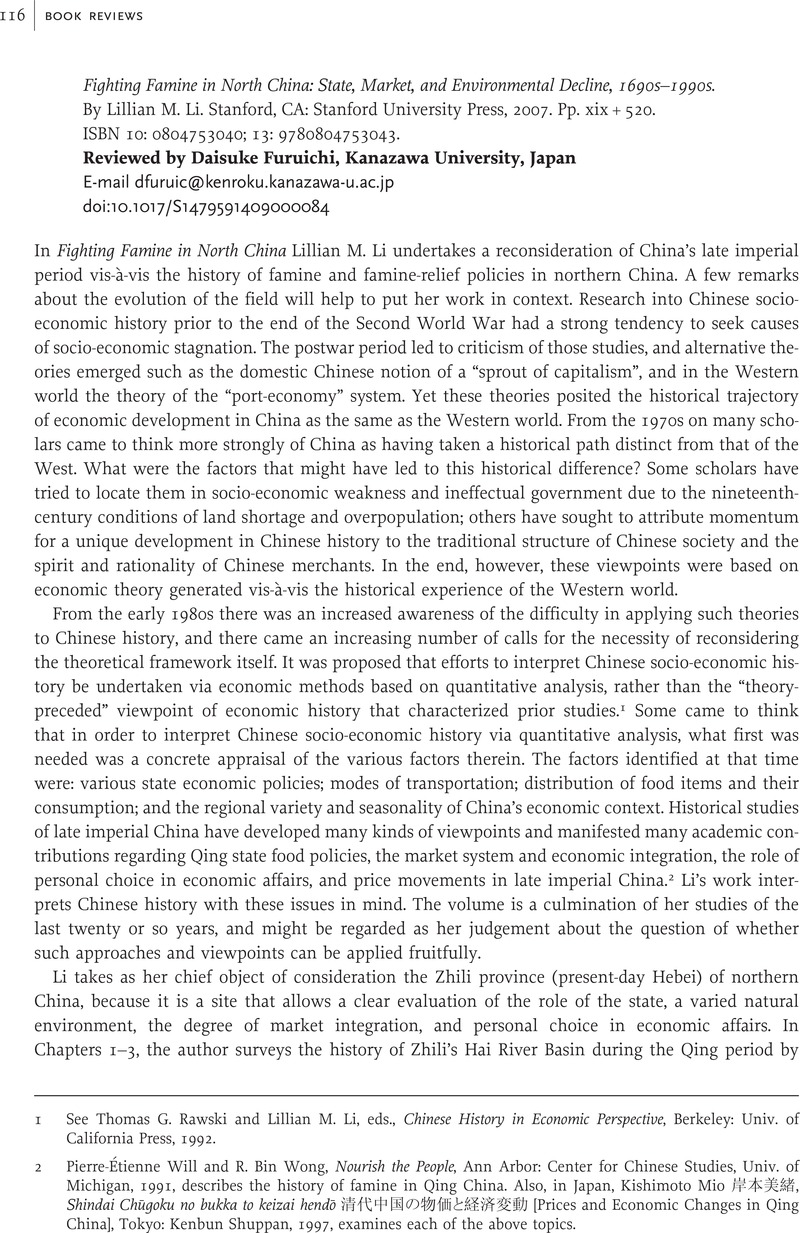No CrossRef data available.
Published online by Cambridge University Press: 17 February 2009

1 See Rawski, Thomas G. and Li, Lillian M., eds., Chinese History in Economic Perspective, Berkeley: Univ. of California Press, 1992Google Scholar.
2 Will, Pierre-Étienne and Bin Wong, R., Nourish the People, Ann Arbor: Center for Chinese Studies, Univ. of Michigan, 1991CrossRefGoogle Scholar, describes the history of famine in Qing China. Also, in Japan, Kishimoto Mio 岸本美緒, Shindai Chūgoku no bukka to keizai hendō 清代中国の物価と経済変動 [Prices and Economic Changes in Qing China], Tokyo: Kenbun Shuppan, 1997, examines each of the above topics.
3 See Wong, R. Bin, China Transformed: Historical Change and the Limits of European Experience, Ithaca: Cornell University Press, 1997Google Scholar, and Pomeranz, Kenneth, The Great Divergence: China, Europe, and the Making of the Modern World Economy, Princeton: Princeton University Press, 2000Google Scholar.
4 See Makoto, Ueda 上田信, “Seitai kankyō no rekishi: Chūgoku kenkyū kara no teigen” 生態環境の歴史—中国研究からの提言 [Ecological History: Suggestions from Studies on China], in Society of Socio-Economic History, ed., Shakai keizai shigaku no kadai to tenbō 社会経済史学の課題と展望 [Issues and Views of Socio-Economic History], Tokyo: Yūhikaku, 2002Google Scholar. In this article, Ueda introduces recent related discussions in Japan.